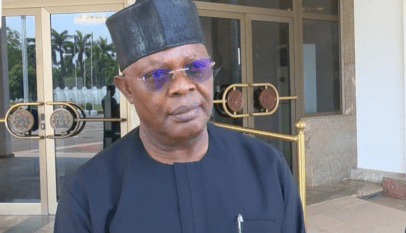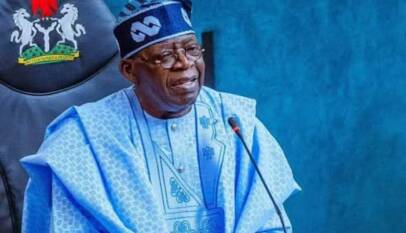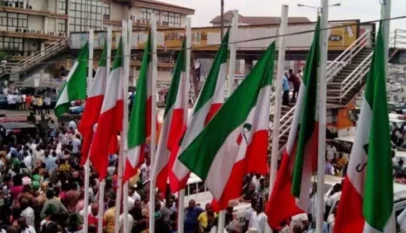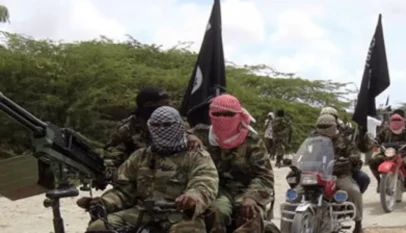
Photo: an Holocaust survivor
By Douglas Maha

German, Polish, France and other global leaders gathered to commemorate the 80th anniversary of the liberation of Auschwitz-Birkenau, the notorious Nazi concentration and extermination camp, where over one million persons, mostly Jews, were killed during World War II.
The ceremony, held at the Auschwitz-Birkenau Memorial in Oświęcim, Poland, honoured the memory of over one million victims who perished at the camp, as part of ongoing global efforts to remember the atrocities of the Holocaust and ensure that such horrors are never repeated.
January 27, the day Soviet troops liberated the camp in 1945, is now recognized worldwide as International Holocaust Remembrance Day, a day to honour the victims of Nazi persecution.
Ceremonial Tributes and Survivor Participation
The ceremony began with a solemn tribute at the Death Wall, where thousands of prisoners were executed by Nazi SS soldiers. Global leaders laid wreaths at the memorial site, accompanied by several surviving prisoners who endured the horrors of Auschwitz.
This moment of remembrance holds particular significance as it marked the beginning of a series of events where survivors, many in their late 80s and 90s, played a central role.
Over 50 former prisoners of Auschwitz-Birkenau and other Nazi concentration camps participated in the anniversary events, with four survivors selected to deliver speeches later in the day.
This year’s ceremony is poignant, as many of these survivors are in advanced age, making it one of the last opportunities for many of them to share their experiences at such large commemorations. International Delegations and Global Leaders’ Participation Delegations from 55 countries attended the event, including German Chancellor Olaf Scholz and President Frank-Walter Steinmeier who paid respects, acknowledging their country’s historical responsibility for the atrocities committed during the Nazi regime.
One of the notable attendees was 91-year-old Pavel Taussig, a Holocaust survivor who accompanied the German leaders. Taussig was deported to Auschwitz in 1944 from Slovakia, just before his 11th birthday.
After surviving the brutalities of Auschwitz, he was forced on a death march to Mauthausen, an Austrian camp, where he was eventually freed by US forces in 1945. Taussig, whose tattooed prisoner number remains visible on his forearm, shared his reluctant but solemn decision to return to the camp, stating that he came back “grudgingly” but felt it was his duty to do so.
Auschwitz’s Legacy: A Warning Against Rising Populism and Intolerance
Piotr Cywiński, director of the Auschwitz-Birkenau Museum, emphasized the relevance of the anniversary in the context of today’s political climate, pointing to the rise of populism and the spread of misinformation.
“In these times of increasing populism, demagoguery, and confusion, it is more important than ever to have clear moral reference points. The survivors’ testimony is an essential part of this,” Cywiński told the Polish Press Agency.
The events in Auschwitz serve as a powerful reminder of the dangers of intolerance and the importance of protecting human dignity. The memory of Auschwitz is not only a reflection of the past but also a call to action in confronting hate and prejudice in contemporary society.
A Global Call to End Anti-Semitism
French President Emmanuel Macron also participated in Holocaust Remembrance events, taking part in a visit to the Holocaust Memorial in Paris before travelling to Auschwitz for the main commemorations.
In his message at the memorial in Paris, Macron reaffirmed France’s commitment to fighting anti-Semitism. “We will not give in to anti-Semitism in all its forms,” Macron wrote in the guestbook.
The 80th anniversary of Auschwitz’s liberation, which marks the end of one of the most horrific chapters of the Holocaust, serves as a moment for the global community to reflect not only on the lives lost but also on the continuing need for vigilance against hatred in all its forms.
As survivors grow fewer in number, their testimonies become even more critical in the collective effort to preserve history and educate future generations.
Addition report were culled from dpa.com



























